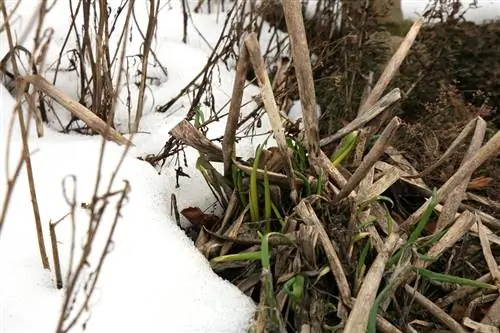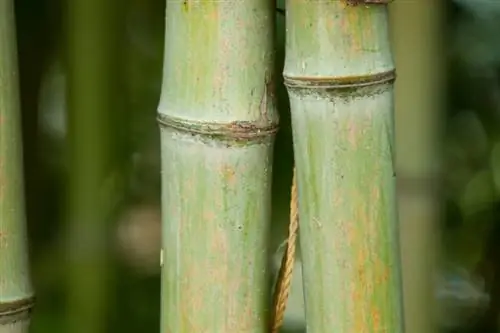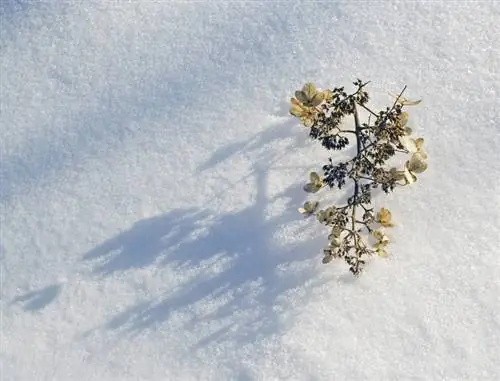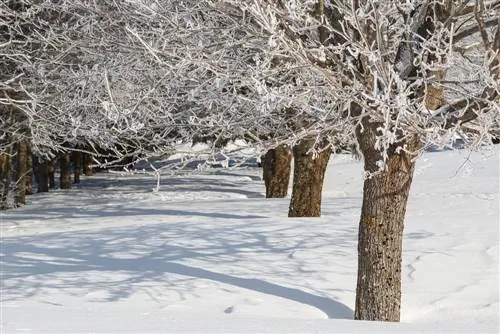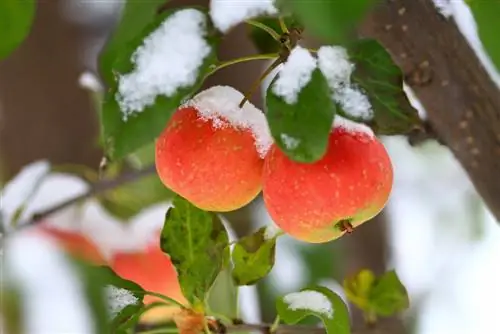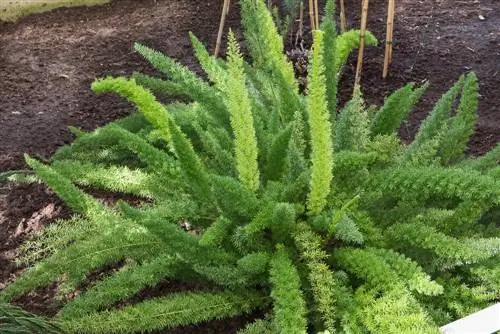- Author admin leonars@hobbygardeners.com.
- Public 2023-12-16 16:46.
- Last modified 2025-06-01 06:02.
You thought the ornamental onion was always and without exception a perennial? If you're not mistaken. There are certain species and varieties that, exposed to the winter, freeze to death outside.
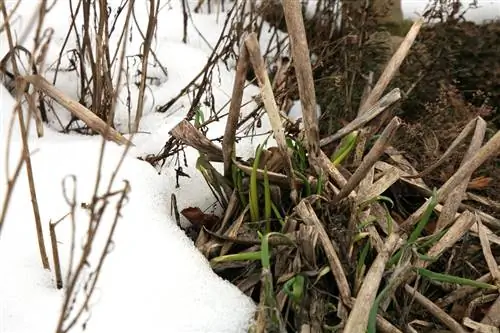
Is ornamental garlic hardy and how do I overwinter it?
Most ornamental garlic species are hardy and can tolerate temperatures down to -20 °C. However, frost-sensitive varieties, such as Schubert's ornamental garlic, should be cultivated in pots and overwintered at 5-10 °C in winter. Before the start of winter, cut back ornamental garlic and stop fertilizing.
Most species and varieties are hardy
Usually you don't need to worry about ornamental onions in winter. This plant is mostly hardy in our latitudes. The bulbs survive in the ground until spring and then sprout again. Most representatives of this plant genus can tolerate temperatures down to -20 °C without any problems.
There are exceptions
But as with everything in life, there are exceptions to ornamental onions, namely those that tolerate frosty temperatures less well. This includes, for example, the well-known Schubert's ornamental garlic. These and a few less common species should be overwintered.
Overwintering ornamental onions - how does it work?
This is what you should know:
- It is best not to cultivate frost-sensitive species outdoors
- saves a lot of procedures
- It is better to plant bulbs of non-hardy species in pots
- in pots: just put them in in autumn
- Overwintering quarters: between 5 and 10 °C cool
If you have planted a frost-sensitive species outdoors, you can overwinter it by digging up the bulb in autumn. This is much more time-consuming than overwintering a potted plant. The bulbs are cleaned and stored in boxes with sand or wooden boxes with ventilation.
Prepare for winter
After flowering, the ornamental onion withdraws. The seeds form and the plant gradually wilts. By late autumn it has dried up. You are welcome to cut it back if it has already turned yellow. You should stop fertilizing in the summer. No further preparation measures for the winter period need to be taken into account.
If applicable. It makes sense to cover the area of the bulb on the surface of the earth with something, for example with brushwood. This prevents too much moisture from penetrating the soil, which could cause the onion to rot.
Tip
Varieties that are not sufficiently hardy but can tolerate frost to a certain extent (e.g. 'Summer Drummer') should be planted deeper into the ground. There they are safer from frost.

